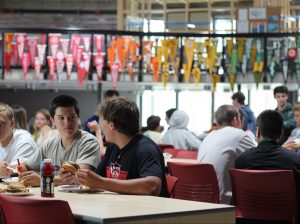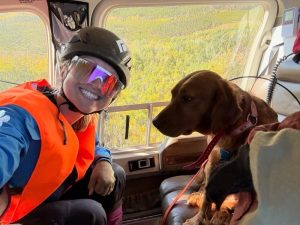Colorado’s free school meals program is back on the ballot this November. Here are 4 things to know.
Voters will be asked two questions that seek to raise tax revenue to continue providing free school meals to children, regardless of their income
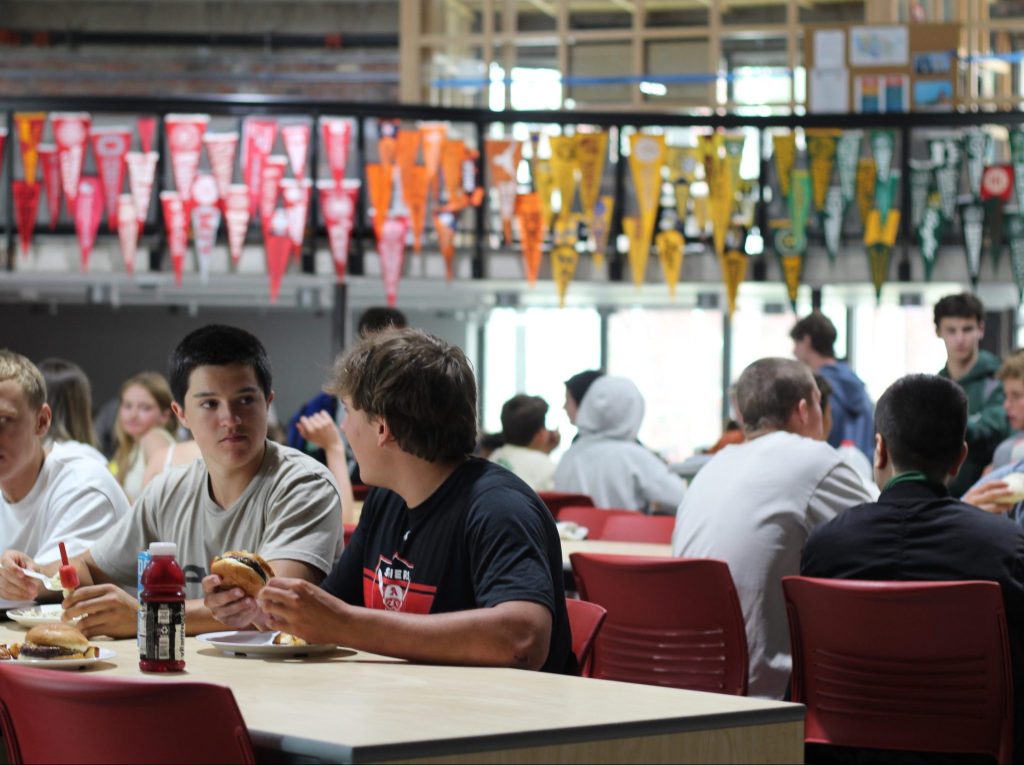
Aspen Times archive
Colorado voters will decide on two ballot initiatives this November that aim to bolster funding for the state’s Healthy School Meals for All program.
The program, first approved by voters in 2022, provides free breakfast and lunch to children in schools regardless of income. It’s been in effect for three years, and every school district in the state currently participates.
But funding for the program, which is generated through higher income taxes on households with a gross income of $300,000 or more, has not been able to keep up with demand and inflation.
The program was initially expected to cost up to $80 million a year, but the true cost is now projected to be at least $150 million.
If more funding isn’t approved this year, the program will be limited to certain students starting next year. The state legislature referred both Propositions MM and LL to voters as their solution. The measures at the only questions that will appear on voters’ ballots this year.
Election Day is Tuesday, Nov. 4.
How MM and LL would work
Proposition MM, if approved, would further raise income taxes on households making over $300,000 or more by limiting standard and itemized tax deductions.
Doing so would equate to an average annual tax increase of $327 for single filers and $574 increase for joint filers, according to analysis by the nonpartisan Legislative Council Staff. An estimated 200,000 households — roughly 6% of households filing taxes — would be affected.
The tax increase would raise as much as $95 million more every year for the free meals program.
Proposition LL would allow the state to keep excess funding for the program that would otherwise be refunded to taxpayers making over $300,000. Under the Taxpayer’s Bill of Rights, or TABOR, the state must ask voters to allow it to keep tax revenue for programs that is higher than what was initially projected.
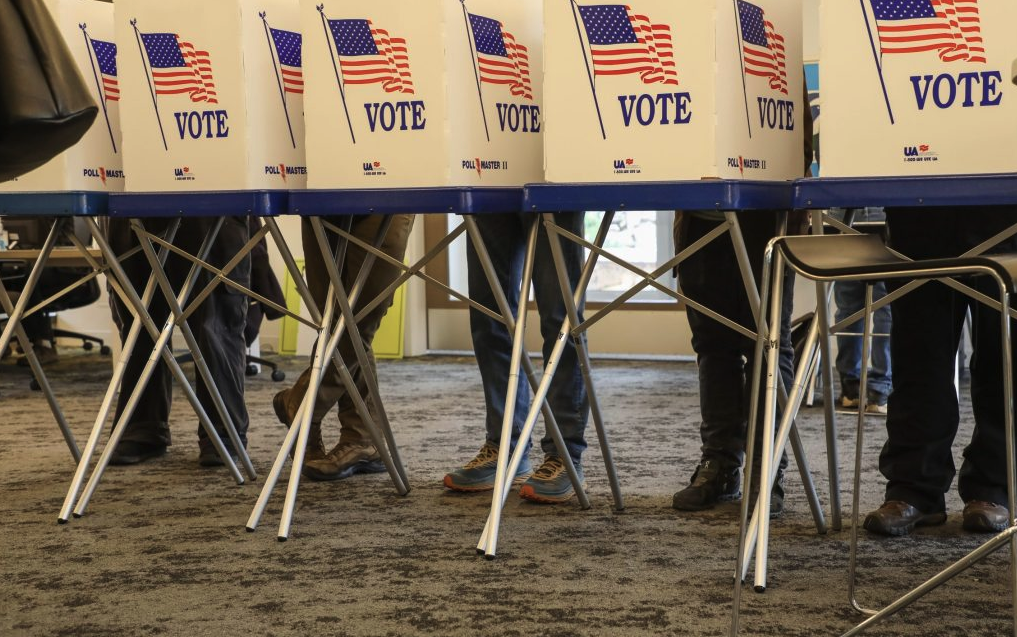
If passed, Proposition LL would allow the state to keep roughly $12 million in excess revenue that it already collected for the program in the 2023-24 fiscal year, and any extra revenue moving forward.
Proponents hope the twin measures will not only be enough to keep the free meals program open to all Colorado students, but also fulfill provisions of the original 2022 measure that sought to bolster pay for lunch staff and provide grants to help school districts purchase locally grown food from Colorado farmers.
Because funding has not kept up with demand, the program has so far been limited to just paying for free meals and administrative costs.
A boost for SNAP
State lawmakers, during a special session in August, also added ballot language to Proposition MM that would allow the state to use some of the additional $95 million in tax revenue on the Supplemental Nutrition Assistance program, or SNAP.
The move was made in response to impending SNAP cuts that were passed as part of congressional Republicans’ and President Donald Trump’s marquee domestic policy bill this summer.
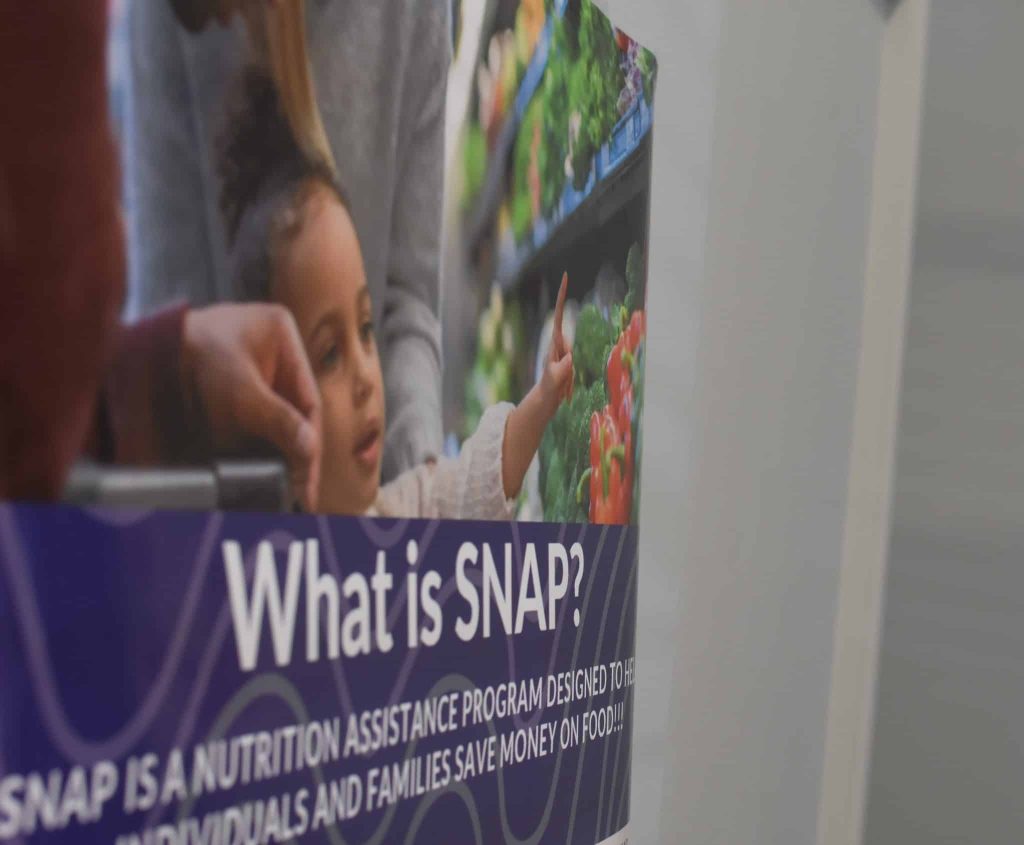
That measure, dubbed the “one big, beautiful bill,” will limit SNAP eligibility starting in 2027 and is set to reduce federal funding for states’ SNAP administration costs based on their payment error rates. That could cost Colorado as much as $175 million a year, according to state officials.
The state, however, would only be able to tap the additional tax funding from Proposition MM for SNAP after providing enough funding to reimburse schools for meals, as well as fulfill the program’s wage increase and food grants provisions.
The effort to offset some of the funding cuts to SNAP comes as food insecurity continues to climb in Colorado, with many food banks reporting increased demand and fewer resources.
Proponents say measures will reduce hunger, stigma
The push for Propositions MM and LL at the ballot box is being led by Keep Kids Fed Colorado, an issue committee registered with the secretary of state’s office in support of both measures. There is no opposition committee currently registered.
Keep Kids Fed has support from around 100 leading anti-hunger, education and children’s groups, including the Colorado Blueprint to End Hunger, Healthier Colorado, Children’s Hospital Colorado and the Colorado Education Association.
As of the most recent filing period on Sept. 29, the committee reported raising $352,000, with $250,000 in cash on hand, much of which came from Hunger Free Colorado, a leading anti-hunger nonprofit.
Anya Rose, director of public policy at Hunger Free Colorado, said passing both ballot measures is essential for ensuring school districts can keep up with demand. Since launching in 2023, the program has resulted in 100,000 more children eating school lunches and 50,000 more eating school breakfasts, according to Rose.
“If voters don’t take action, many public schools will no longer be able to offer free breakfast and lunches to all students starting in January,” Rose said. “We would expect hunger to rise sharply, and it would put those meals at risk for a lot of students.”
Kevin Vick, president of the education association, said he sees the measures as an extension of what voters already passed, referencing the ballot initiative that created the free meals program in 2022.
“This just basically solidifies this program so that it can have the funding it needs to stay viable into the future,” he said.
Along with more children eating at school, Vick said the program has helped reduce stigma around being able to afford a meal. Before the creation of Colorado’s free meals program, students had to be income-qualified to qualify for free and reduced meals.
Vick said removing those barriers “creates an environment where, regardless of your income, regardless of your means, you don’t have to think about (food), or stress over it.”
Criticisms of program’s costs, TABOR impacts
Critics of the ballot proposals, however, argue that it will raise taxes at a time when the cost of living and economic pressures are challenging more and more households.
State Republican lawmakers largely voted against sending the ballot initiatives to voters this year, with some arguing that the measures further chip away at TABOR, which continues to be a flashpoint at the state Capitol. Republicans largely oppose measures that loosen TABOR’s restrictions on government revenue, arguing that it creates runaway government spending.
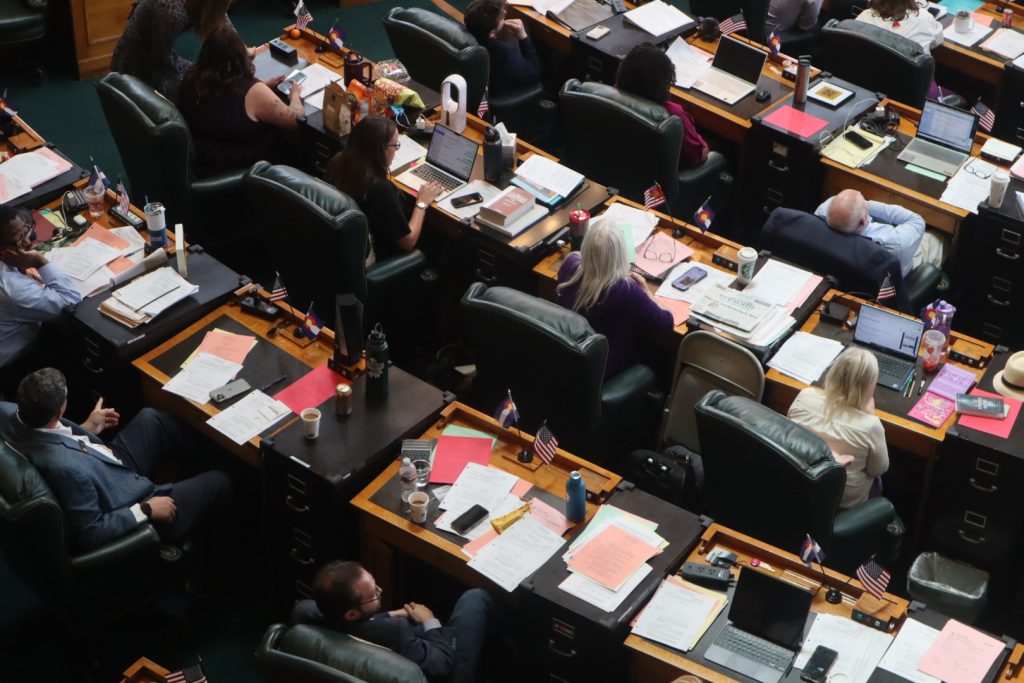
An Oct. 1 report titled “Colorado’s Free School Lunch Program is Getting More Expensive,” by the Common Sense Institute, a Colorado think tank that promotes free economic policy, argues that neither ballot measure addresses the free meals program’s spending levels.
Common Sense Institute refers to itself as a nonpartisan research group “dedicated to the protection and promotion of Colorado’s economy,” though some critics say it has a rightward lean.
The think tanks’ report states that provisions of the original free meals program, such as technical assistance grants, local food grants, and wage increases for food workers, “aren’t necessary for sustaining the healthy meals program but drive its costs up.”
“Despite this fact, legislators have focused on raising taxes instead of reducing spending,” the report goes on to state. “Instead of giving the public a choice about spending, voters’ only two options will be to either raise their own taxes or let the program continue on its path toward insolvency.”
Rose, with Hunger Free Colorado, said the increased costs have been a result of high need and popularity, and that, because of TABOR, the only way to meet that demand for more funding is by going to voters.
“That’s what (the ballot measures are) doing. It’s giving Colorado voters a say in the future of a really popular program,” Rose said.
Ballots will begin to go out in the mail during the week of Oct. 10, and eligible Coloradans have until Oct. 27 to register to vote and receive a mailed ballot. After that date, Coloradans can still register to vote up to and on Election Day, and can fill out a ballot at an in–person polling location.
More information on how to register and vote can be found online at GoVoteColorado.com.

Support Local Journalism

Support Local Journalism
As a Summit Daily News reader, you make our work possible.
Summit Daily is embarking on a multiyear project to digitize its archives going back to 1989 and make them available to the public in partnership with the Colorado Historic Newspapers Collection. The full project is expected to cost about $165,000. All donations made in 2023 will go directly toward this project.
Every contribution, no matter the size, will make a difference.

